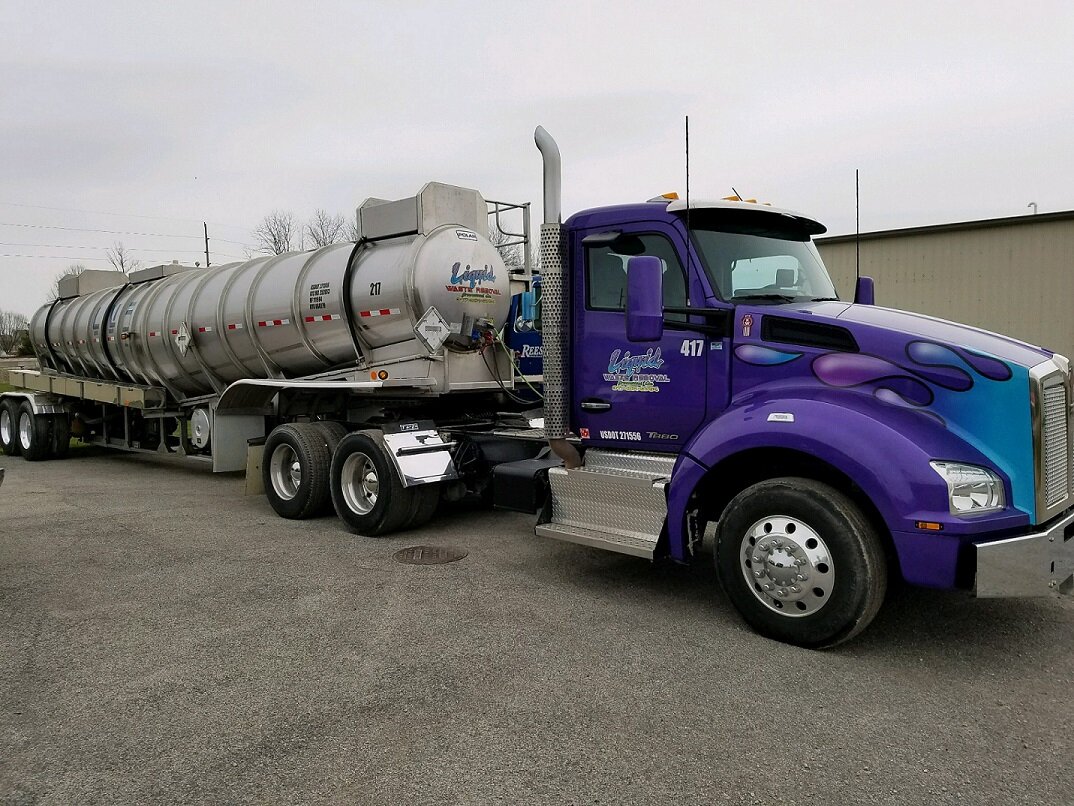Leading Liquid Waste Disposal Melbourne: Trusted Solutions for Correct Waste Management
Leading Liquid Waste Disposal Melbourne: Trusted Solutions for Correct Waste Management
Blog Article
Comprehending the Comprehensive Refine of Liquid Waste Disposal: Ideal Practices and Environmental Impact Factors To Consider
The management of fluid waste disposal is a complex concern that needs a comprehensive understanding of various best methods and their connected environmental effects. From the kinds of fluid waste produced to the methods utilized for collection, treatment, and last disposal, each action plays an essential duty in protecting communities and public health and wellness.
Kinds Of Fluid Waste
Understanding the numerous sorts of liquid waste is essential for effective administration and disposal techniques. Fluid waste can be broadly categorized right into numerous kinds, each needing special handling and treatment methods.
Industrial liquid waste typically has unsafe materials, consisting of hefty metals, solvents, and chemicals, generated throughout making procedures. These wastes require strict regulatory compliance to shield human wellness and the setting. Domestic liquid waste mainly refers to wastewater created from houses, consisting of sewage and greywater, which, although much less poisonous, can still position substantial dangers if incorrectly handled.
Agricultural fluid waste, including overflow from ranches, typically includes fertilizers and pesticides that can lead to ecological destruction otherwise treated effectively. Medical liquid waste, created from health care centers, includes infected fluids such as bodily fluids and chemicals, calling for specialized disposal techniques to stop infection and ecological contamination.
Last but not least, oil and grease waste, generally generated by restaurants and vehicle industries, can trigger extreme clogs in sewer systems if not handled properly. Comprehending these classifications assists in targeted approaches for treatment, conformity with policies, and reliable disposal techniques, inevitably advertising environmental sustainability and public wellness security.

Collection Techniques
Effective collection techniques are important for the correct monitoring of fluid waste, making certain that it is collected securely and successfully before therapy or disposal. Numerous strategies are utilized depending upon the kind of fluid waste created, the quantity, and the certain characteristics of the waste.
One common technique is making use of committed collection containers or sumps, which are made to capture liquid waste at the resource. These systems typically integrate pumps that assist in the transfer of waste to larger storage containers or treatment facilities. Additionally, mobile collection units equipped with vacuum cleaner technology are used in scenarios where waste is produced intermittently or in hard-to-reach areas.
For commercial setups, closed-loop systems can efficiently minimize leakages and spills, enabling for the recovery and reuse of liquid waste. It is likewise vital to train employees on correct collection procedures to reduce threats connected with harmful materials.
Additionally, carrying out routine maintenance timetables for collection tools makes certain ideal efficiency and security. The integration of innovative monitoring systems can improve collection efficiency by giving real-time data on waste degrees and potential dangers. Generally, efficient collection techniques are foundational to sustainable fluid waste management methods.
Therapy Procedures
Treatment processes play an essential role in the management of liquid waste, transforming potentially unsafe products into multiple-use resources or secure effluents - liquid waste disposal. These processes can be extensively categorized into physical, chemical, and biological techniques, each customized to address certain contaminants present in the waste stream
Physical therapy approaches, such as sedimentation and filtering, job by eliminating put on hold solids and particle matter. These strategies are frequently the initial step in the therapy chain, successfully reducing the lots on subsequent processes. Chemical therapies include the usage of reagents to reduce the effects of unsafe materials, precipitate heavy steels, or oxidize organic pollutants, consequently improving the security of the effluent.
Biological treatment procedures, including turned on sludge systems and anaerobic food digestion, profit from the natural capabilities of bacteria to degrade natural matter. These techniques are especially reliable for wastewater having biodegradable contaminants. Advanced treatment technologies, such as membrane filtration and progressed oxidation processes, are progressively utilized to accomplish higher levels of purification.
Integrating a mix of these treatment approaches not only guarantees conformity liquid waste disposal with governing criteria yet also advertises ecological sustainability by recouping beneficial sources from liquid waste.
Disposal Options
Exactly how can organizations ensure the risk-free and accountable disposal of liquid waste? Effective disposal alternatives are critical for protecting public health and the setting. The main methods include land disposal, incineration, and treatment complied with by discharge into local wastewater systems.
Land disposal involves the careful containment of fluid waste in designated land fills, making certain that it does not leach right into bordering dirt or water. Incineration, on the other hand, topics liquid waste to heats, transforming it right into ash and gases, which require correct purification to reduce emissions. This technique is ideal for harmful wastes that can not be dealt with via conventional means.
In cases where fluid waste can be treated, organizations might go with organic or chemical treatment procedures to counteract damaging parts before discharging the treated effluent into community systems. This path typically lines up with regulatory needs, guaranteeing that the effluent satisfies safety and security criteria.
Inevitably, companies should perform extensive analyses of each disposal alternative to identify its feasibility, thinking about variables such as waste composition, regulatory compliance, and prospective threats to health and the atmosphere. By choosing ideal disposal approaches, businesses can add to a responsible waste management technique.
Ecological Influence
The environmental effect of fluid waste disposal is a crucial factor to consider for companies looking for to reduce their eco-friendly impact. In addition, the discharge of untreated or inadequately dealt with waste into surface waters can result in eutrophication, leading to oxygen exhaustion and the subsequent fatality of fish and various other organisms.

To minimize these influences, organizations need to adopt finest practices such as executing extensive waste treatment procedures, promoting recycling and reuse, and adhering to governing standards. By taking a proactive method to liquid waste management, entities can dramatically reduce their ecological footprint while supporting lasting development objectives. Eventually, a detailed understanding of the environmental effects connected with fluid waste disposal is necessary for notified decision-making and liable stewardship of natural deposits.
Verdict
Effective administration of liquid waste is vital for guarding ecological honesty and public health and wellness. Inevitably, a thorough understanding of fluid waste disposal not only mitigates environmental impacts but also fosters a commitment to accountable resource management and environmental stewardship.
The management of liquid waste disposal is a complex issue that calls for an extensive understanding of different finest techniques and their associated environmental effects. From the types of fluid waste created to the approaches utilized for collection, therapy, and last disposal, each step plays a vital function in protecting environments and public health and wellness.The environmental influence of liquid waste disposal is a crucial consideration for organizations looking for to reduce their ecological footprint. Ultimately, a thorough understanding of the ecological influences linked with fluid waste disposal is necessary for notified decision-making and accountable stewardship of all-natural resources.
Ultimately, a comprehensive understanding of liquid waste disposal not only mitigates ecological effects but likewise cultivates a commitment to liable source management and ecological stewardship.
Report this page